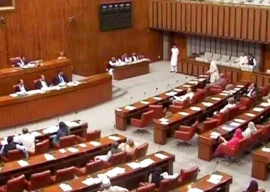
The ‘we can do it’ school bases its confidence on the success of the nuclear project. Copper and gold mining is certainly not more sophisticated than that for uranium, which was carried out with unadulterated local competence. In the process, spread nearly over three decades, a corps of scientists, engineers and technologists has emerged to share and spread the know-how to other sectors. The Pakistan Atomic Energy Commission (PAEC) continues to be a model of excellence at a time when most public sector organisations have become dysfunctional. This, according to the other view, is precisely the point. The atomic project was a national endeavour with total political commitment, unaffected by changing governments. It also required detailed and patient work by devoted professionals. Such is unlikely to be the case for Reko Diq. Neither are there professionals, nor managers to handle such a large project. The federal-provincial wrangling is in addition to the angling of those ready to make a quick, fat buck on the side. It is, thus, better to engage a foreign concern.
Both views disregard a crucial issue. In the nuclear project, what economists call a budget constraint was absent. It was promised unlimited funds, in rupees and in any foreign currency denomination, no questions asked. There was no fear of the auditor general’s department, no questions from any public accounts committee of the National Assembly or the courts. Project approving authorities, like the Central Development Working Party and Economic Committee of the National Economic Council and economic-policy making bodies such as the Economic Committee of the Cabinet, did not bother it. Now, doing it ourselves means that Reko Diq will be a project under the public sector development programme. Such projects are approved on the basis of technical soundness and economic appraisal. No discussion takes place in the Planning Commission, however, on how a project will be financed. A budget constraint is imposed by the ministry of finance, guided by the macroeconomic framework it faces every year. In a crisis situation, as at present, the framework changes every quarter. With the country unable to reform its tax structure and expenditure pattern, its ability to finance a mega project of the size of Reko Diq is limited, if at all it exists, for the next several years.
Even if there are scientists who know what they are doing, engineers well-versed in the field, technicians with relevant skills and managers adept in supervising large projects in remote areas — in short, the equivalent of the Kahuta Research Laboratories/PAEC team working on the nuclear project — there will still be a serious budget constraint. Dreams come true if there is no budget constraint. The dream team that shook the Chagai Hills in the summer of 1998 was not used to working under a budget constraint. This 400-million-dollar question is not being posed.
Published in The Express Tribune, January 28th, 2011.

1720097164-0/BeFunky-collage-(9)1720097164-0-165x106.webp)
1730446133-0/BeFunky-collage-(7)1730446133-0-165x106.webp)


1730543683-0/Express-Tribune--(3)1730543683-0-270x192.webp)

1730543238-0/Untitled-design-(86)1730543238-0-270x192.webp)

1730533347-0/Untitled-design-(85)1730533347-0-270x192.webp)







COMMENTS (5)
Comments are moderated and generally will be posted if they are on-topic and not abusive.
For more information, please see our Comments FAQ